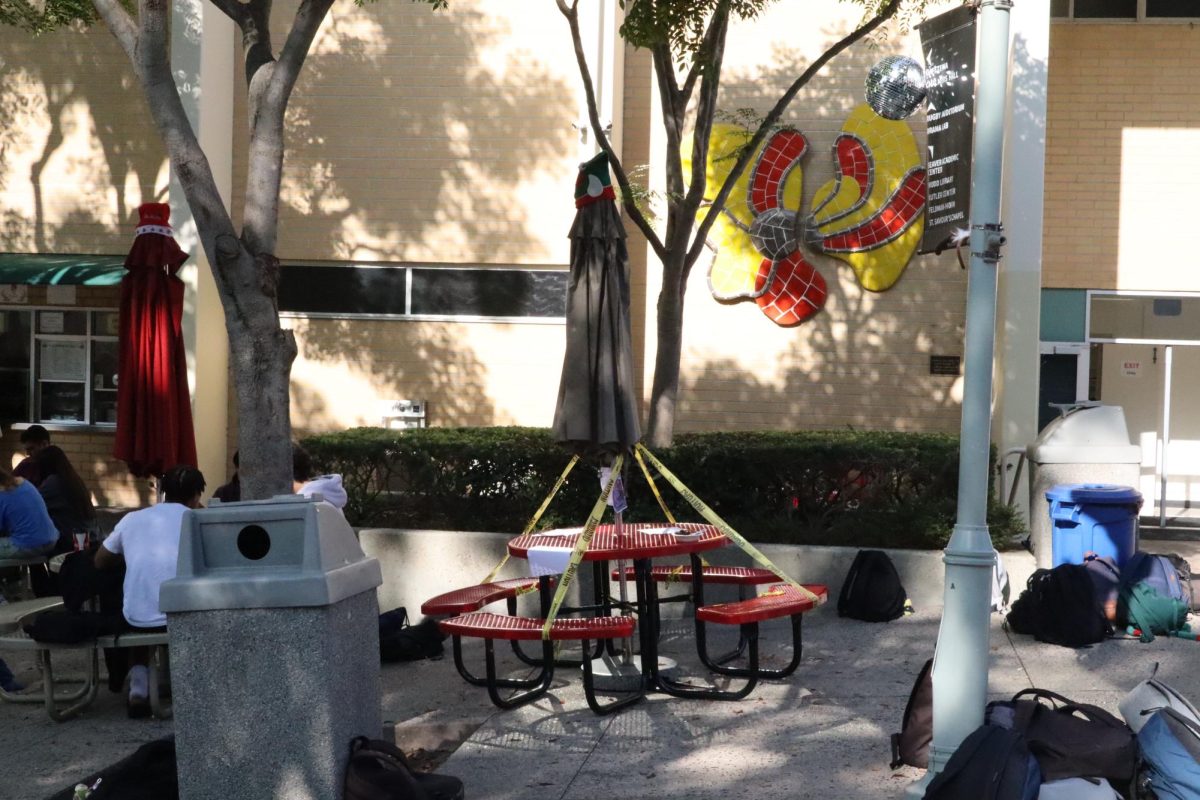Facing the pressure of schoolwork and outside obligations, Mary* ’17 turns to medication such at Ritalin, Vyvanse and Adderall to keep her focused and awake. She started taking them regularly this year when her schoolwork and extracurricular activities increased, claiming that it was not possible to complete hours of work without “some sort of outside aid.”
“[I] do good work,” Mary said. “I remember one night I had this really big math test the next day among a couple of other things, and I don’t even remember exactly everything I did in terms of studying for that, but I got close to 100 percent on the math test. I don’t really know why. It just kind of happened.”
According to Partnership for Drug-Free Kids, high school students have been using these stimulant medications illegally more frequently in recent years. However, these drugs, with a prescription, are only meant to be used to lessen the effects of ADHD, or attention deficit hyperactivity disorder, and narcolepsy.
“[ADHD is diagnosed as] the lack of attention or lack of focus from people who cannot focus for more than 15 minutes or so,” said Dr. Stephanie Iem of Palomar Health Downtown in Escondido. “[People with ADHD] always feel like they’re on the go. They start one task and their mind wanders off, and they sometimes don’t finish what they start.”
“Before I took Adderall, I think I had the most trouble in math just because I couldn’t concentrate for the whole period, so my mind would start wandering around, and when I snapped out of that I’d have no idea what the teacher was talking about,” Beth* ’16 said. “I’d just keep falling behind because math’s the kind of class where you constantly need to be following because the concepts build on each other.”
However, with the use of medication, Beth saw a significant change in her focus and her schoolwork.
“After I got my prescription, I just feel like I’m a lot more alert, like I can power through class and homework assignments without breaking my concentration,” Beth said.
Some of the effects of Adderall and similar drugs, such as the increased concentration, make them appealing to high school and college students who do not have prescriptions for attention disorders.
According to Partnership for Drug-Free Kids, the abuse of Adderall has increased from 5.4 percent among 12th graders in 2009 to 7.4 percent in 2013.
“I think students feel like sometimes [taking Adderall is] a quick fix or that it’s going to help them study,” psychologist Kavita Ajmere said. “I think students do it for a variety of reasons. One might be because they think they are going to be able to concentrate better. [Another] might be because they will actually be able to stay up longer.”
John* ’16 does not have ADHD, but takes his brother’s Adderall when he needs to finish a big project or has a test the next day.
“When I was studying for an astronomy class last year, I took one, and I ended up spending four hours of stuff that wasn’t even going to be on the test,” John said. “I mean, I did very well on the test, but I spent an absurd amount of time on it.”
Mary has had similar experiences when on Adderall and other stimulants. At times they stayed up for days to do work.
“There’s this aspect of tunnel vision that comes with taking these types of medications,” Mary said. “It’s really helpful because it improves my memory, so if I have to memorize a bunch of stuff for a test the next day, I’ll take one.”
Adderall is listed as a Control Substances Act Schedule II, which implies that it has a “high potential for abuse” and that it can lead to “severe psychological or physical dependence.”
Other highly addictive substances such as cocaine, morphine, phencyclidine (PCP) and opium are classified within the same category.
However, in a study released by the American Academy of Pediatrics, when collegestudents were asked whether their use of Adderall posed a health risk, only two percent thought their use was “very dangerous” versus the 81 percent who believed Adderall was “not dangerous at all” or only “slightly dangerous.”
Despite this confidence, Adderall is accompanied by severe side effects if taken without a prescription, such as loss of appetite, mood changes, insomnia, increased heart rate and weight loss, according to the same study.
John and Mary attest that their focus is not always geared towards schoolwork when on Adderall.
“Sometimes when you’re trying to get something done, but then you go on the Internet, you’re going to be really focused on the Internet,” Mary said. “You can’t stop going on everything on the Internet.”
“One time I decided I wanted to run, so I ran five miles,” John said. “Then for some weird reason, I realized that I had to do work. I just want to do one thing as much as I can.”
Not only does Adderall have negative side effects, but it can be seen as an honor code violation at school.
“A great analogy, I think, would be a kid that’s getting over-tutored or a kid that has enough cash on hand to really just get ridiculous hours of expensive, awesome tutoring, and that put them at an advantage,” Father James Young said. “So in this weird kind of world that we live in, I would say that, in a very technical kind of way, I do think it is an unfair advantage.”
Young said that the unfair advantage also comes from the fact that in order to obtain Adderall, a student must be in good financial standing to purchase the drug.
In addition they must be willing to commit a “quasi-illegal” act.
However, Young believes that the repercussions of using Adderall illegally has a “snowball” effect.
“I would say that [being in a high-pressure institution] is not a legitimate excuse or reason [to take Adderall] because the fact is, it just snowballs.” Young said. “So then you end up in a college that’s too much of a stretch for you, and then it just builds. It snowballs. All of a sudden, now you’re in a college that you were only in because of the Adderall, so you’ve got to keep taking it, and then what’s the next step? It’s a slippery slope. [It’s true to] say that kids in a high-pressured institution are more tempted to use something like that, but it doesn’t mean that it’s a good temptation.”
Ajmere agrees with Young.
“My question really to the student is, how do you define better?”Ajmere said. “What is better? Does getting A’s—is that better, and at what cost does it come to? To take someone else’s prescribed medication because you think you’re going to get a better grade compromises the whole learning process because they are focused on the outcome and not the process.”
*Names have been changed


































